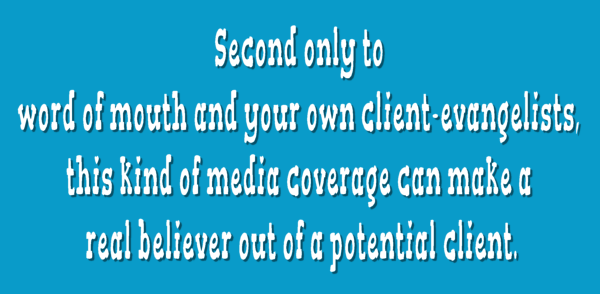Over the years I’ve been asked this so many times – when do I think health and patient advocacy as a well-known profession will “arrive?” As if there should be some sort of date on which a switch is flipped and the world begins to recognize, then hire independent advocates to help them navigate the healthcare system.
Truth is, I’ve been expecting that tipping point for years. But (true confession) the evolution has been slower than I anticipated. Despite my 30+ years of business experience, working with every size business in every area of business imaginable, my crystal ball is still somewhat tarnished and my prediction abilities remain challenged.
The answer remains: I just don’t know. It has been growing steadily. The opportunities are apparent every day! But… yes, it has been slower than I thought it would be.
So many advocates, frustrated because the profession isn’t more mainstream, and because their phones don’t begin ringing off their hooks the moment they hang out their shingles, ask me “Why can’t the Alliance make it happen? Just do a lot of big promotion! Why aren’t you pushing advocacy in national press? Or doing lots of google advertising? or?”
They ask me for two reasons: first, because they don’t want to do marketing themselves – they want someone else to do it for them. (Don’t we all!)
And second, because they don’t understand the nature of marketing well enough to understand why a big national promotional outreach doesn’t help THEM. At least it doesn’t by itself without some work on their part to make it happen.
Now we have the opportunity to test that!
Just out a few days ago, an excellent overview of health and patient advocacy and navigation was published in the New York Times. Now, the NYT is, arguably, one of THE most influential news publications in the United States, and possibly the world (geesh, these days you really can’t call it simply a “newspaper”). The bulk of its readership is no where near New York – it’s everywhere. Talk about big press!
The article is titled, Patient Advocates Help Navigate Health Care. It features and quotes patient stories, APHA members, plus Consumers Union and other experts who weigh in on the validity, and the more importantly, the benefits of advocacy.
Now, sorry to say, that if you don’t understand marketing and if you think that such broad national exposure will make your phone start ringing, I believe you’ll be sorely mistaken. The problem is, there is almost nothing local about it. The advocate-needing patient in Omaha who may or may not read the New York Times isn’t going to run to his/her computer to look for an advocate as a result of this story, no matter how influential the NYT might be. So, while the article certainly promotes the profession well, there is very little chance that promotion will trickle down to make your individual phone ring without your own efforts invested.
Further, there are some reasons we may not want it to – at least not today. That’s because in places like Omaha, plus Springfield, and Lexington, and other smaller urban, and most certainly rural areas, there are few, if any advocates available. How frustrating for a patient to find hope in an article (“OMG, maybe someone can help me survive this!”) only to have hope dashed when there are no advocates available in their areas. That may actually do our profession more harm than good.
Still further, there are hundreds of advocates who MIGHT be available, but they can’t be found. They may be working as advocates, but not affiliated with any organization that has a public directory. They may not be members of APHA, therefore not found in the AdvoConnection Directory. So even if potential clients did go looking for these hidden advocates, they would not find them. (If the tree falls in the forest, and there is no patient advocate to be found… OK, a mix up of metaphors, but you get my drift.)
Bottom line – the existence of the New York Times article is very unlikely to help you directly by itself.
But – you CAN use the article yourself to promote your work. Here’s how:
Consider that this NY Times article, among other press exposure we have been recording for many years, provides health advocates with a form of veneration and legitimacy we could not command just on our own. The more respected the media which promotes our profession in positive terms, the taller OUR standing. Prior to the New York Times, we’ve enjoyed wonderful recognition from other national media such as Time Magazine, Forbes, US News & World Report, O Magazine, the Wall Street Journal, the LA Times, the Orlando Sun Sentinel, all the major broadcast and cable news networks (TV and radio) – and dozens of others.
This is certainly material you can use when you do your own marketing.
- You can link to these articles, videos and podcasts.
- You can share them on social media.
- You can make copies of (some of) them and attach them to your brochure or include them in a folder of materials.
- You can include links in email newsletters or excerpts in printed newsletters.
- If you have been featured in any of them, you most definitely want to showcase that.
Second only to word of mouth and your own client-evangelists, this kind of media coverage can make a real believer out of a potential client, and can most definitely result in a signed contract. In the face of all this public recognition, a potential client can be assured that advocacy, and the help it provides them, is “real” and “good” and – yes – bona fide.

Do you have a unique way of sharing this good news with your potential clients? If so, will you share your ideas below?
…………………….
PS – there is one correction to the article, worth pointing out:
- There are not 650 advocates in the US today. That was the number of APHA members the day I was interviewed. The number of advocates is probably more like 2000 or more.
And one quote I disagree with:
- Quote attributed to Lisa McGiffert from Consumers Union: “Another reason to hire [an independent advocate] is when you are being pressured by insurance coverage. But if you have a good health plan, you might not need one, she said. In fact, for those who have high-end health insurance, the opposite may just be true.
…………………….
LEARN ABOUT APHA MEMBERSHIP | FIND MORE REASONS PATIENTS NEED ADVOCATES






Thank you, Trisha! I agree that working independently is quite unlike being affiliated with an organization, whether it’s a hospital, skilled nursing facility, insurance company, or whatever. I tell advocates and clients alike…always consider who’s paying the advocate, because that’s where the alliance will have to be. The patient’s interests and needs will ultimately come second.